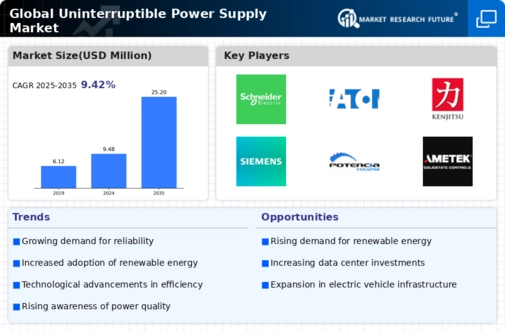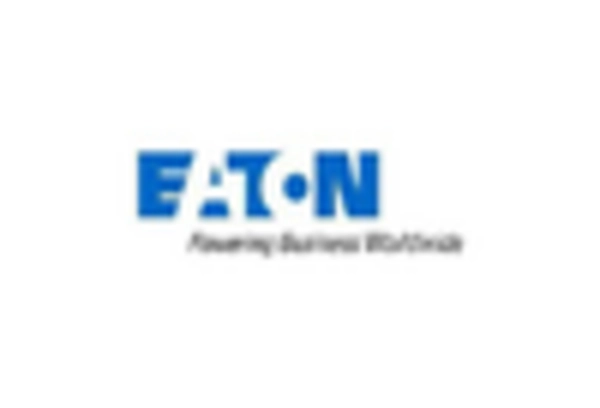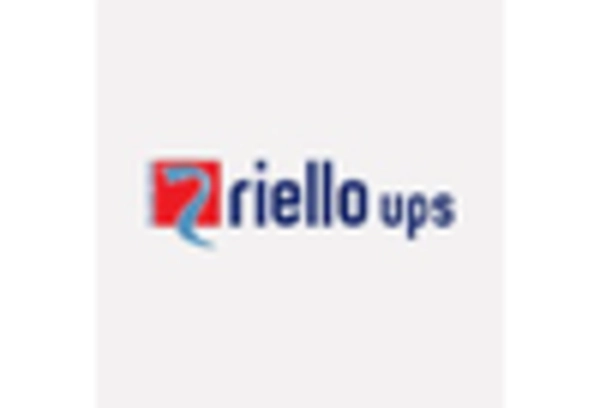Market Trends
Key Emerging Trends in the Uninterruptible Power Supply UPS Market
The continuous evolution of modular technology has significantly impacted the UPS market, particularly in high-power applications exceeding 200kVA, where it has seen consistent growth. Its prominence extends notably to data center applications, establishing modular technology as a driving force in the 3-phase UPS industry. Forecasts from industry experts at Quality Power Solutions suggest that modular technology's market value is anticipated to reach approximately USD 2.5 billion by 2020.
The modular approach caters to the specific power needs of servers and storage devices, providing a customized UPS system that aligns precisely with operational requirements. By integrating modular technology, extraneous hardware modules like hot-swappable components and connected modules are eliminated, simplifying real-time system updates. Modular UPS systems are highly scalable and adaptable, offering flexibility to data centers in tailoring power supplies according to cabinet sizes. This scalability enables seamless expansions, accommodating diverse applications from small-scale to large-scale data centers.
One of the significant advantages of modular technology lies in its simplified maintenance protocols for data centers. Unlike traditional UPS architectures that require the disconnection of the entire UPS system during maintenance, modular-based UPS systems offer enhanced convenience. This design allows the removal and reinstallation of individual UPS modules one at a time, streamlining maintenance routines without compromising the system's operation. Several companies also provide cloud-based monitoring software solutions designed to manage and oversee UPS performance in data centers. AEG Power Solutions' MoniUPS, for example, offers a cloud monitoring solution empowering maintenance teams to respond promptly to power failures and implement corrective measures.
The growing adoption of modular technology is poised to surge further due to its extensive application in data centers. Its adaptability, scalability, and streamlined maintenance procedures make it an attractive choice for modern data center infrastructures. As the demand for efficient, tailored, and easily maintainable UPS systems increases, modular technology emerges as a robust solution that resonates with the needs of data-driven operations.
In conclusion, the burgeoning utilization of modular technology in the UPS market, particularly in data center environments, underscores its pivotal role in shaping the future of power management solutions. Its versatility and ease of maintenance are poised to reinforce its significance in the industry, catering to the evolving requirements of modern data centers seeking efficient and adaptable power solutions.


















Leave a Comment